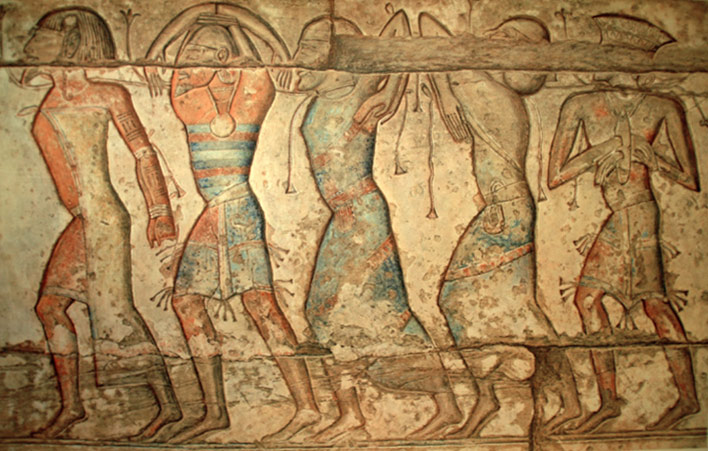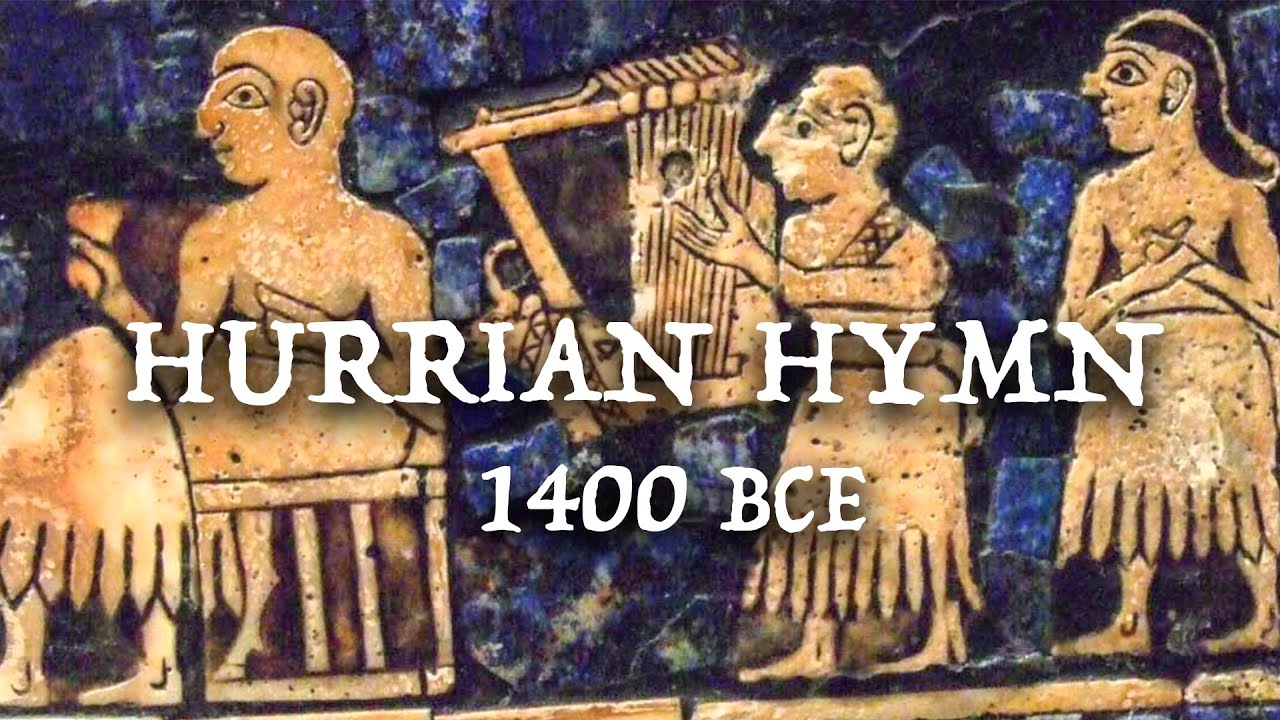
The Bronze Age Collapse:
The Perfect Storm
Captive “Sea Peoples” from a relief at Medinet Habu temple.
It seems more than likely that it took all the causes we mention in the previous section to bring down the Bronze Age civilizations – and one more factor. Is what happened in the ancient world over 3,000 years ago likely to happen again, but on a much larger scale?
Cline cites the work of archeologist Colin Renfrew of Cambridge University who as early as 1979, in “Systems Collapse as Social Transformation” described a component of his catastrophe theory as “the failure of a minor element started a chain reaction that reverberated on a greater and greater scale, until finally the whole structure was brought to collapse.” He itemized events that cause such catastrophes as follows:
- The collapse of the central administrative organization
- The disappearance of the traditional elite class
- The collapse of the centralized economy
- A settlement shift and population decline
According to Cline, Renfrew understood that it might take as much as a century for all aspects of the collapse to be completed, and that there would be no one single obvious cause. Additionally, in the aftermath of such a collapse, “there would be a transition to a lower level of sociopolitical integration and the development of ‘romantic’ Dark Age myths about the previous period.”
From about 1500 BCE to 1200 BCE, Mycenaean Greece, Crete, Anatolia and the Hittite empire, Cyprus, Syria, the Southern Levant, and (to a lesser extent) Egypt relied on trade in the Mediterranean region. Many of the Late Bronze Age kingdoms had fragile economies dependent on imports from other lands, including copper and tin for making bronze weapons. The Hittites, for example, were importing grain from Egypt which was critical for their survival. These nations had become so interdependent that a catastrophe in one area inevitably triggered a reaction in neighboring areas.
Cline posits that these empires failed because not one, but “a concatenation of events, both human and natural— including climate change and drought, seismic disasters known as earthquake storms, internal rebellions, and ‘systems collapse’— coalesced to create a ‘perfect storm’ that brought this age to an end.” When multiple catastrophes took place almost simultaneously, as they did in this period, their effects were amplified and multiplied, and spiraled throughout the region.
Recall that this is “the Bronze Age.” Imagine a disruption along the route from Afghanistan, from which tin has to be imported, into to the Aegean. It would end the bronze industry. As Carol Bell, a British academician and colleague of Cline, observes “the strategic importance of tin in the LBA [Late Bronze Age] … was probably not far different from that of crude oil today.” The very internationalism that had ensured the success of the Bronze Age triggered the apocalyptic disaster that eventually ended it. Just as it could in our globalized world today.
Cline reminds us that there are times when we also wonder if our own civilization might be heading for a similar collapse. What, for example, would have happened in 2008 if the banking institutions had collapsed? What if our electrical grid, satellites, and of course, the GPS we have come so much to rely on are destroyed? We are no more immune than the civilizations of the Late Bronze Age.
He suggests that we might learn from this history. “If we see the same sort of things taking place now that happened back then, including drought and famine, earthquakes and tsunamis, and so on, then might it not be a good idea to look at the ancient world and see what happened to them? Adam Frank of NPR asked me, ‘If we don’t want to be repeating history, what lessons should we be learning from their mistakes?’ I replied, and I will say it here again, that we should be aware that no society is invulnerable and that every society in the history of the world has ultimately collapsed. The fact that similarly intertwined civilizations collapsed just after 1200 BC should be a warning to us; we are, in fact, more susceptible than we might wish to think. At the same time, we should also be thankful that we are actually advanced enough to understand what is happening and can take steps to fix things, rather than simply passively accept things as they occur.”
External Stories and Videos


Watch: The Oldest (Known) Song of All Time
The Hurrian Hymn is history’s oldest known song. It’s the earliest written song that can be reconstructed.
